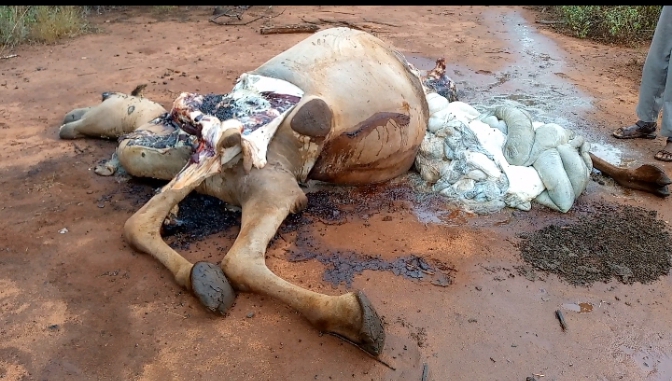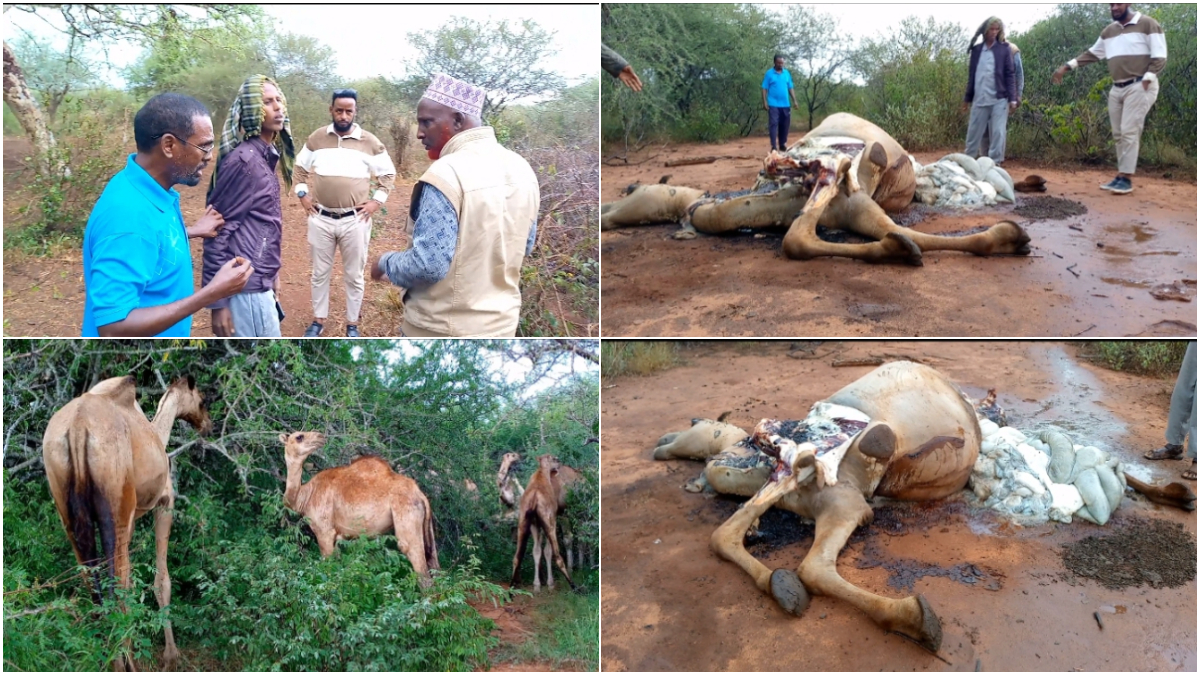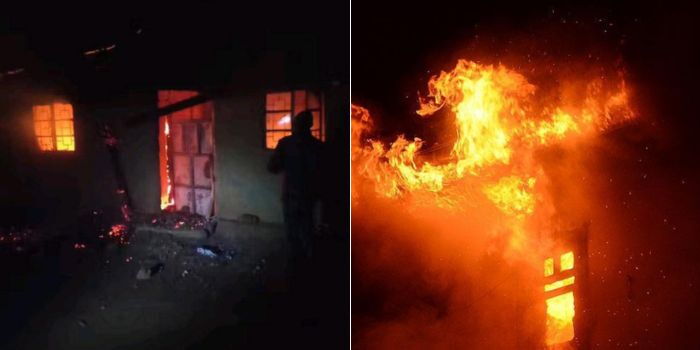A wave of fear and frustration has swept through Maungu in Voi Constituency, Taita Taveta County, after a series of brutal camel killings rocked the Hassan Ibrahim family, leading to financial losses exceeding KSh1.9 million.

At the heart of the crisis is Sagala Ranch, where the family’s camels are normally grazed and housed. According to Ibrahim, a pastoralist of Somali origin, the violence has been ongoing for months, with the latest attacks claiming two camels this week — bringing the total to seven in under six months.
“We have reported these cases to the police and we want justice,” Ibrahim told reporters, his voice heavy with emotion. “We are also Kenyans like other Kenyans. We pay park fees, we pay taxes and our children study here at Maungu.”

The camels, some reportedly attacked within a protected enclosure (boma) at night, were subjected to horrific injuries. One had its leg amputated before its neck was slashed.
“This camel was inside the enclosure. It was chased away, had its leg amputated and its neck was cut off. It fell and died in agony,” a family member recounted, describing the scene as one of pure brutality.

Local camel owner Ahmed Mahad condemned the killings, calling for swift government intervention. “We are facing theft and cruelty. We urge the authorities to arrest those responsible and ensure justice is served,” he said.
Abdirahman Hassan, a herder, expressed growing concern for their own safety. “This week it’s two camels, this month it’s three. In less than six months, seven camels have been killed. We are scared and we need the government to help us.”
The value of a single camel is estimated at Sh200,000, placing the family’s total loss at well over Sh1.4 million. But the impact runs deeper than finances.
“This is not just about livestock. It’s about livelihoods, dignity and survival,” said Idris Mohammed, a social leader in the region. “For over twenty years, pastoralism has been our lifeline. These killings are not just criminal — they are an attack on our way of life.”
Mohammed urged the Ministries of Security and Agriculture to step in, emphasizing the need for immediate action. “We can’t afford to wait. The killings must stop, and justice must be delivered.”
The family has formally reported the matter at Maungu Police Station, awaiting investigation and legal redress. Meanwhile, the residents of Maungu live in fear, hoping their voices will echo beyond the dry fields of Sagala Ranch and stir the conscience of the nation.










